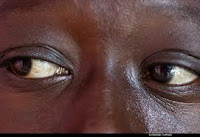How is Aspergers Assessed?

Question How is Aspergers Assessed? Answer Aspergers is a diagnosis based on the behavioral criteria set forth in Diagnostic and Statistical Manual of Mental Health Disorders (DSM). Because it is difficult to provide a diagnosis based on brief personal contacts, mental health professionals often rely on the reports of parents and teachers. 1. Qualitative impairment in social interaction, as manifested by at least two of the following: • a lack of spontaneous seeking to share enjoyment, interests, or achievements with other people (e.g., by a lack of showing, bringing, or pointing out objects of interest to other people) • failure to develop peer relationships appropriate to developmental level • lack of social or emotional reciprocity • marked impairment in the use of multiple nonverbal behaviors such as eye-to-eye gaze, facial expression, body postures, and gestures to regulate social interaction 2. Restricted repetitive and stereotyped patterns of b
